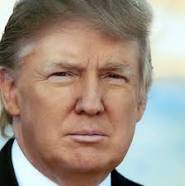WASHINGTON — European leaders, anxious over Donald Trump’s unpredictability and kind words for the Kremlin, are scrambling to get face time with the new American president before he can meet with Russian President Vladimir Putin, whose provocations have set the continent on edge.
One leader has raised with Trump the prospect of a U.S.-European Union summit early this year, and the head of NATO — the powerful military alliance Trump has deemed “obsolete” — is angling for an in-person meeting ahead of Putin as well. British Prime Minister Theresa May is working to arrange a meeting in Washington soon after Friday’s inauguration.
For European leaders, a meeting with a new American president is always a sought-after — and usually easy-to-obtain — invitation. But Trump has repeatedly defied precedent, making them deeply uncertain about their standing once he takes office. Throughout his campaign and in recent interviews, Trump has challenged the viability of the EU and NATO, while praising Putin and staking out positions more in line with Moscow than Brussels.
“There are efforts on the side of the Europeans to arrange a meeting with Trump as quickly as possible,” Norbert Roettgen, the head of the German Parliament’s foreign committee and a member of Chancellor Angela Merkel’s party, told The Associated Press.
Trump backs Britain’s exit from the European Union, casting the populist, anti-establishment movement as a precursor to his own victory. In a recent joint interview with two European newspapers, Trump said of the EU, “I don’t think it matters much for the United States.”
Such rhetoric alone was enough to set off alarm bells in Europe. And Trump’s praise for Putin and promise of closer ties to Moscow have deepened the uncertainty.
Trump has raised the prospect of dropping U.S. sanctions on Moscow and has appeared indifferent to Russia’s annexation of territory from Ukraine. The hacking of his opponents during the U.S. election, and Trump’s dismissal of the CIA’s warnings about Russia’s involvement, added a dose of spy drama.
Trump’s sentiments mark a dramatic shift in Republican views of Europe, just a generation after George H.W. Bush famously greeted the collapse of the Iron Curtain by calling for a “Europe whole and free.”
Trump’s top national security adviser has been in close contact with the Russian ambassador to the U.S., conversations that have involved setting up a phone call between the Putin and the president-elect, transition officials have said.
But Trump currently has no plans to meet with Putin, according to the senior adviser, who insisted on anonymity in order to discuss the transition team’s internal planning. Aides vehemently denied a recent report in The Sunday Times of London that Trump’s first foreign trip would be a summit with Putin in Reykjavik, Iceland, the site of a Cold War meeting between President Ronald Reagan and Soviet leader Mikhail Gorbachev.
Still, Europe’s leaders are eager to ensure they have Trump’s ear before Putin does. NATO Secretary General Jens Stoltenberg is hoping to meet with Trump quickly, perhaps in Washington, according to a NATO official. And even if Trump rejects a U.S.-EU summit, European officials are said to have discussed the prospect of a smaller meeting with the U.S. president and the heads of the continent’s most powerful countries, including Merkel.
Eight of the past 10 presidents have made their official first trip abroad to either Canada or Mexico.
But a Putin meeting wouldn’t be without precedent. When Bill Clinton made his maiden trip to Vancouver in 1993, it was primarily for a summit with Russian President Boris Yeltsin.
Aides have signaled that one of Trump’s first foreign leader meetings at the White House will be with May, who became prime minister following Britain’s vote to leave the EU. The president-elect’s team is also working on early invitations to Washington for the leaders of Mexico and Canada, according to the Trump adviser.
Barring other arrangements, Trump and Putin’s first meeting of the year might not come until July when the Group of 20 leaders gather in Hamburg, Germany — though Trump has yet to say whether he plans to attend international summits.
If he does, some European leaders could get an audience with him in May at a planned NATO summit and a gathering of the more elite Group of Seven in Italy. Russia had been a member of that group, but the U.S. and Europe ousted Putin after the annexation of Crimea from Ukraine.
One of the first tests of Trump’s loyalties may well be whether he seeks to bring Russia back into that fold.
“If we start to equate democracies and non-democracies, allies and adversaries, this is setting a very dangerous precedent,” said Heather Conley, director of the Europe program at the Center for Strategic and International Studies. She said that if Trump were to reach out to Putin ahead of the Europeans upon taking office, “it would be a real cautionary note” for long-standing U.S. allies.
___
Grieshaber reported from Berlin. AP writer Frank Jordans in Berlin and Raf Casert and Lorne Cook in Brussels contributed to this report.



 By
By 